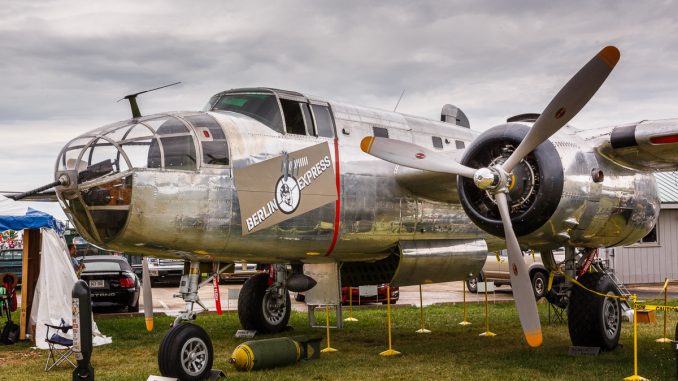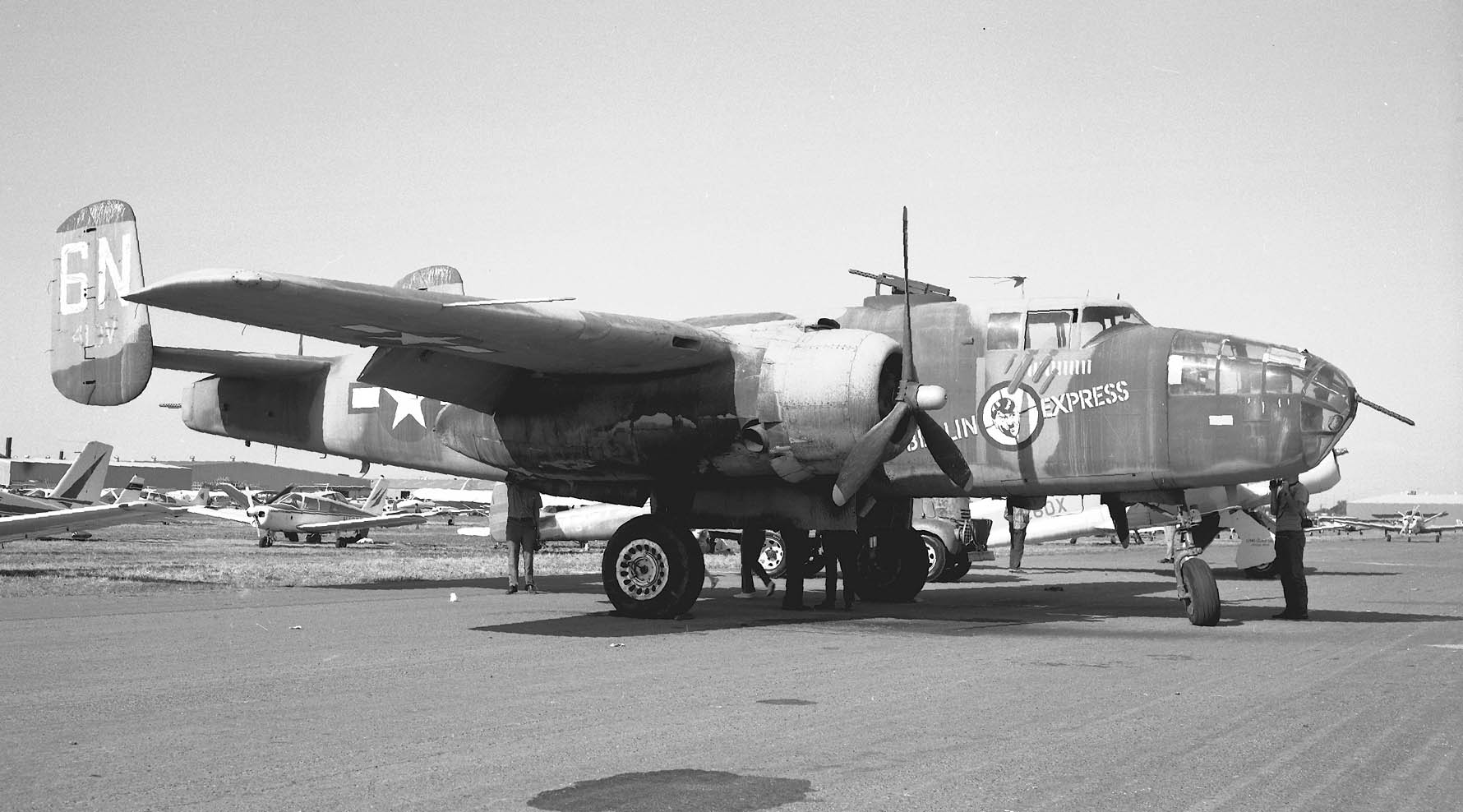

As most of our readers will know, the Experimental Aircraft Association Foundation has a large collection of historic aircraft. One of these is an extraordinarily rare H-model variant of the North American B-25 Mitchell. This medium bomber rolled off the North American factory production line at Inglewood, California in 1943 and flew with the U.S. Army Air Force as 43-4432 during WWII. Her wartime history is not currently known, but she went into storage at Altus, Oklahoma following the conflict. The government’s Reconstruction Finance Corporation sold the B-25 to Delta Drilling in June, 1947. The aircraft passed through a series owners in quick succession, before receiving an executive transport modification, while reportedly operated for American heiress Barbara Hutton. This didn’t last long however, and the B-25 again passed from company to company in relatively short order before finally winding up with Tallmantz Aviation in September, 1968. The B-25 joined two dozen or so other Mitchells that year to take part in making the film of Joseph Heller’s novel, “Catch-22”. She flew in the movie as Berlin Express, a name which the bomber still wears. The EAA acquired Berlin Express a couple of years after the film’s release, but she was in rough shape by this point. EAA Museum volunteers spent ten years restoring the aircraft before her first post restoration flight in 1985. However, she is now in need of a major overhaul, and the EAA has published the following press release announcing the project, what it will require to complete, and how we can contribute to getting the old girl back in the skies again.

The EAA’s recent press release:
The Project
As part of our mission to share The Spirit of Aviation and curate aviation’s role in the United States and beyond, EAA is proud to announce a campaign to restore and return our North American Aviation (NAA) B-25H bomber back to flying condition. When complete, it will join EAA’s B-17 and Ford Tri-Motor flight experience aircraft and travel the country, bringing aviation history to life. In particular, the B-25 will continue to tell the story of World War II and of the greatest generation’s commitment to service, country, and honor.
Project Budget and the Need for Charitable Support
Passionate volunteers working side-by-side and guided by EAA’s talented mechanics have allowed our organization to begin the restoration process. But in order for this worthwhile project to succeed, EAA needs significant charitable support going forward to bring this aircraft back to flying condition by the spring of 2018. To meet this objective, EAA needs to secure $400,000 in charitable funds to ensure that the following stages of the B-25 restoration are completed:
- Overhaul existing engines, propellers and acquire a back-up engine
- Repair hydraulic systems
- Install new brakes and wheels
- Install new avionics and engine instruments
- Interior and exterior painting
- Install new seating and passenger safety equipment
Restoring the B-25 is all about sharing the aircraft’s history, teaching the importance of it, and helping people understand the contributions made by the crews who flew these planes and those who built them.
If you wish to contribute to the restoration of this important aircraft, please click HERE.
Born in Milan, Italy, Moreno moved to the U.S. in 1999 to pursue a career as a commercial pilot. His aviation passion began early, inspired by his uncle, an F-104 Starfighter Crew Chief, and his father, a military traffic controller. Childhood adventures included camping outside military bases and watching planes at Aeroporto Linate. In 1999, he relocated to Atlanta, Georgia, to obtain his commercial pilot license, a move that became permanent. With 24 years in the U.S., he now flies full-time for a Part 91 business aviation company in Atlanta. He is actively involved with the Commemorative Air Force, the D-Day Squadron, and other aviation organizations. He enjoys life with his supportive wife and three wonderful children.





great article
Many thanks indeed Kirsten!